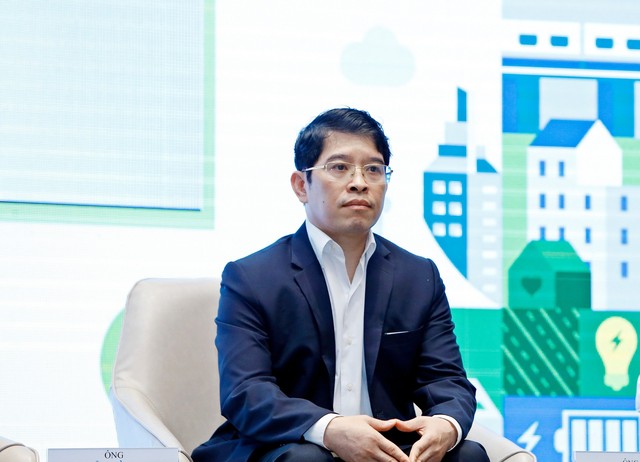.jfif) Opinion
Opinion

 |
| Associate Professor Dr. Nguyễn Đình Thọ, director of the Institute of Strategy and Policy on Natural Resources and Environment under the Ministry of Natural Resources and Environment. Photo tinnhanhchungkhoan |
HÀ NỘI — At the recent seminar Net Zero: Commitment and Action for a Sustainable Future, held as part of the Việt Nam ESG Forum, Associate Professor Dr. Nguyễn Đình Thọ, director of the Institute of Strategy and Policy on Natural Resources and Environment under the Ministry of Natural Resources and Environment, shared insights on Việt Nam's journey towards sustainable and green development.
It began when Việt Nam joined the Kyoto Protocol, the start of the country's commitment to reducing greenhouse gas emissions.
At present, Việt Nam is actively participating in the global race to achieve net-zero emissions by 2050, an ambitious goal, moving from coal power to clean energy. Part of this is a commitment that there will be no new coal power plants commissioned after 2030. These steps are crucial for aligning with global efforts and contributing to a sustainable future, Thọ said.
Internationally, he said, developed countries emphasise the need for collaboration between developed and developing nations to meet emission reduction targets. This has led to the establishment of nationally determined contributions (NDCs), where countries pledge their emission reduction goals. Currently, countries are following two types of commitments: self-determined commitments and those with international support.
Thọ noted that Việt Nam has taken significant steps by adjusting its NDC for the third time, proposing a 3.5 per cent emission reduction by 2030, with international support. At COP 26, the Vietnamese Government committed to net zero by 2050. At COP 28, Việt Nam presented a comprehensive national plan to mobilise resources for this transition.
In a recent report, PwC said that Việt Nam is one of five Asian countries on track to meet its 2030 commitments. The 2020 Environmental Protection Law and Decree 06 have introduced specific requirements for businesses to inventory and reduce emissions by 2025. This regulatory framework underscores the country's dedication to environmental protection and sustainable development.
The Government and relevant ministries have directed efforts to reduce emissions in key sectors such as energy, agriculture, transportation and waste management.
Thọ emphasised that Việt Nam is a pioneer in institutionalising the circular economy, as reflected in the 2020 Environmental Protection Law. This approach demands a sustainable production and consumption chain, encompassing exploration, design, processing, distribution, collection, transportation, recycling and re-using waste. The law also mandates waste sorting at source and imposes fees on polluters, a step-by-step implementation process currently underway.
In the global context, the rules of the game have shifted towards emission reduction, addressing three major crises: climate change, environmental impact reduction and biodiversity loss mitigation. Developed countries have established numerous technical barriers, including carbon emission regulations effective from January 2026. From January 1, 2025, Việt Nam must prove that its agricultural exports are not sourced from deforestation.
If businesses are not ready, they risk being left out of the global market, Thọ warned. Vietnamese businesses must be brave and engage in this global game to attract investment and participate in world trade. Reporting on Environmental, Social and Governance (ESG) criteria is essential for enhancing credibility and meeting the mandatory requirements set by European countries for sustainable development reporting.
He highlighted one key opportunity for businesses - understanding global principles of emission reduction, waste reduction and biodiversity conservation. By focusing on what Việt Nam already has, such as improving carbon absorption in forests, the country can generate carbon credits (which can also be earned by reducing emissions in the energy sector) and these can be leveraged for climate and green finance support.
With careful accounting, Việt Nam could sell carbon credits, improving the livelihoods of workers and residents, he said.
In conclusion, the path to net-zero emissions and sustainable development is challenging yet essential. Việt Nam's proactive steps and commitments signal a promising future, but the country must act swiftly and decisively to remain competitive and achieve its goals, he added. VNS




